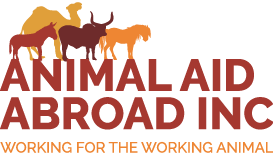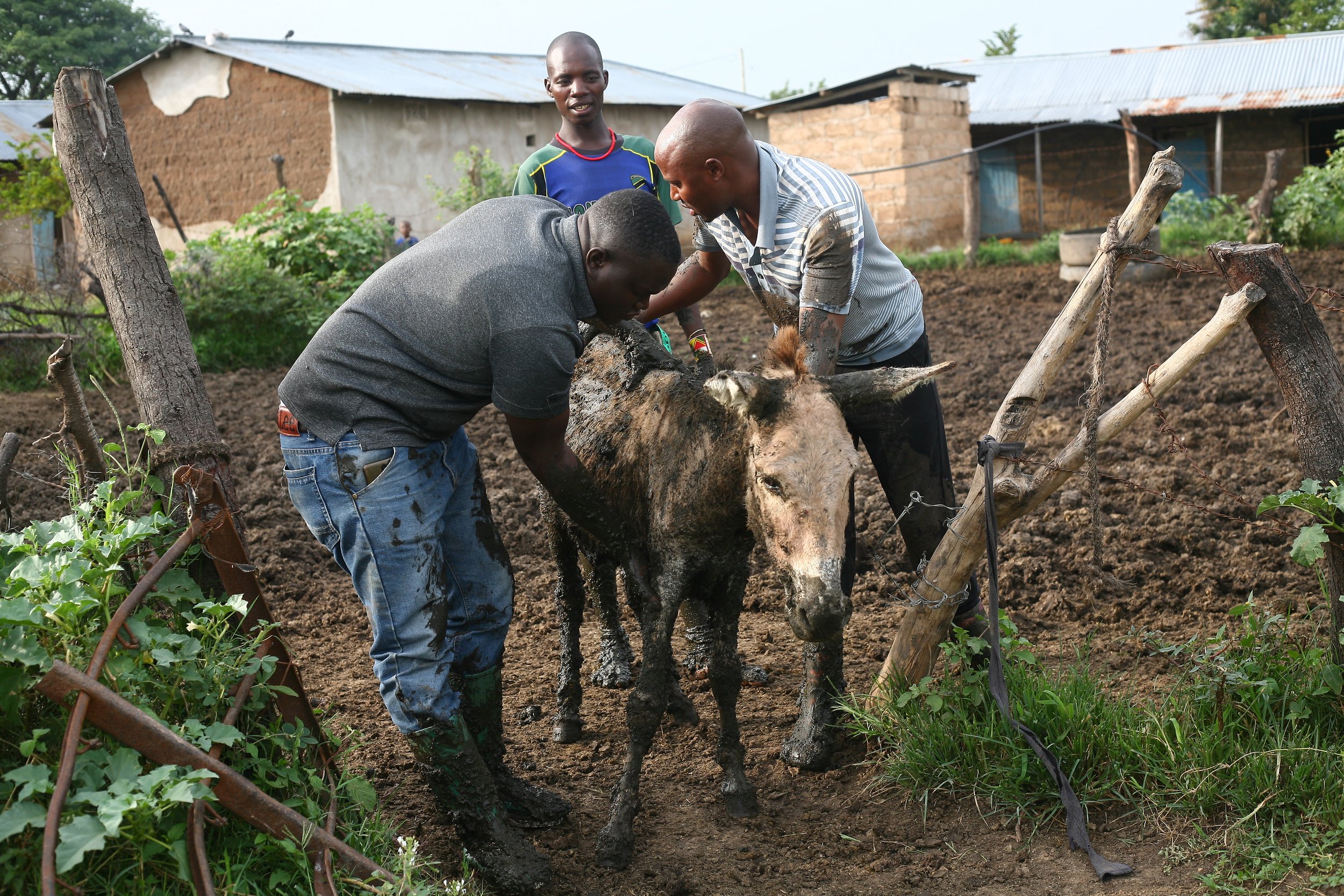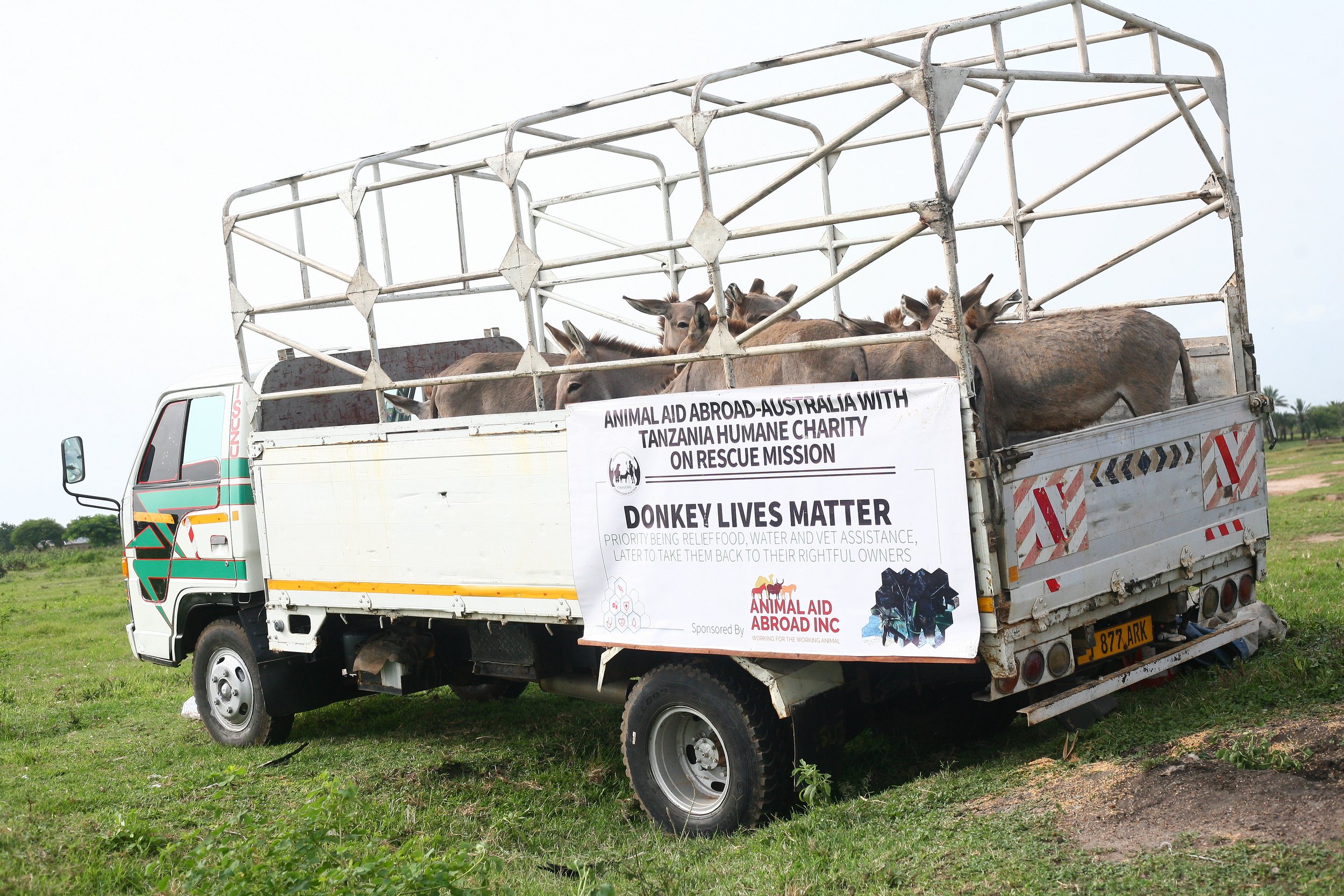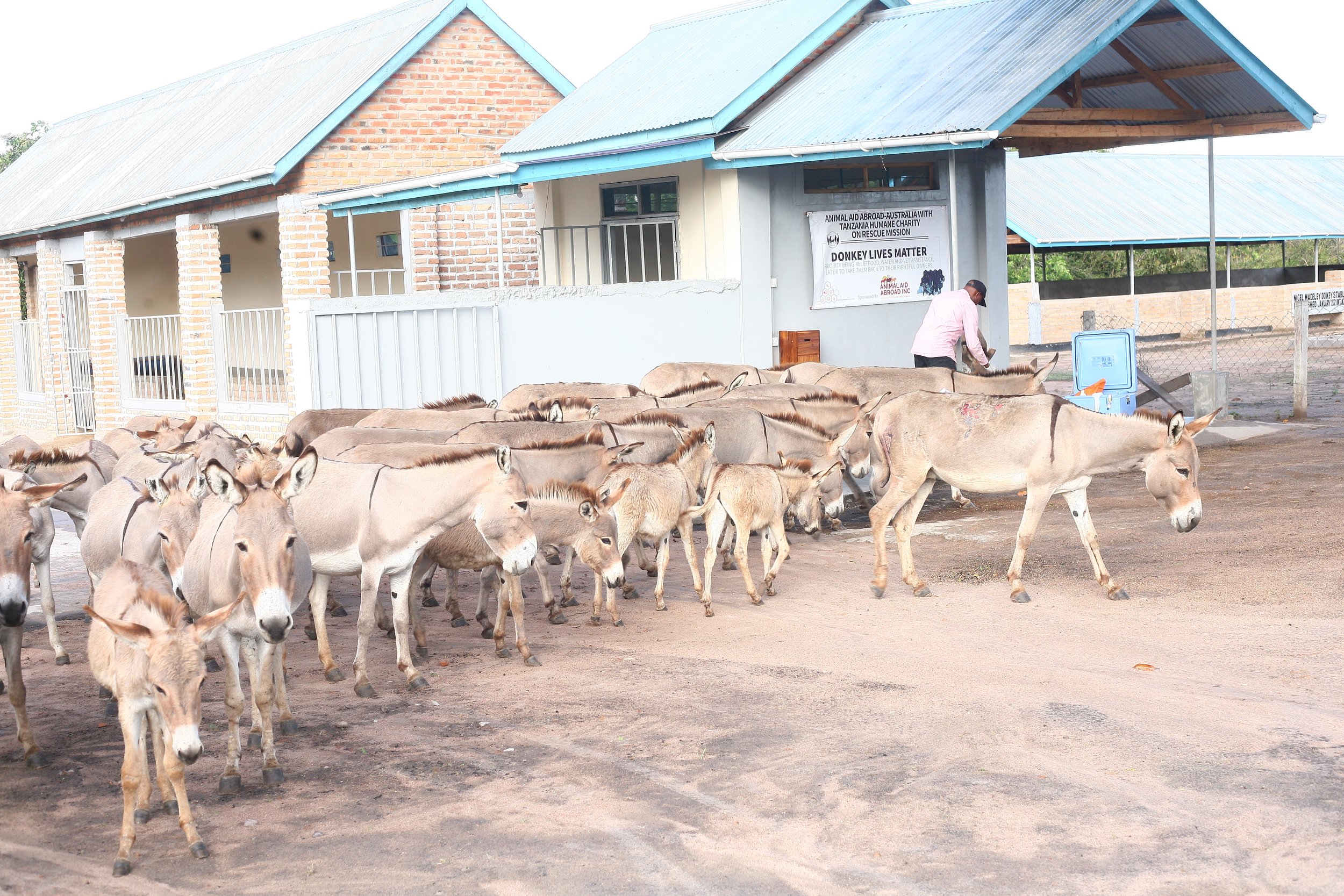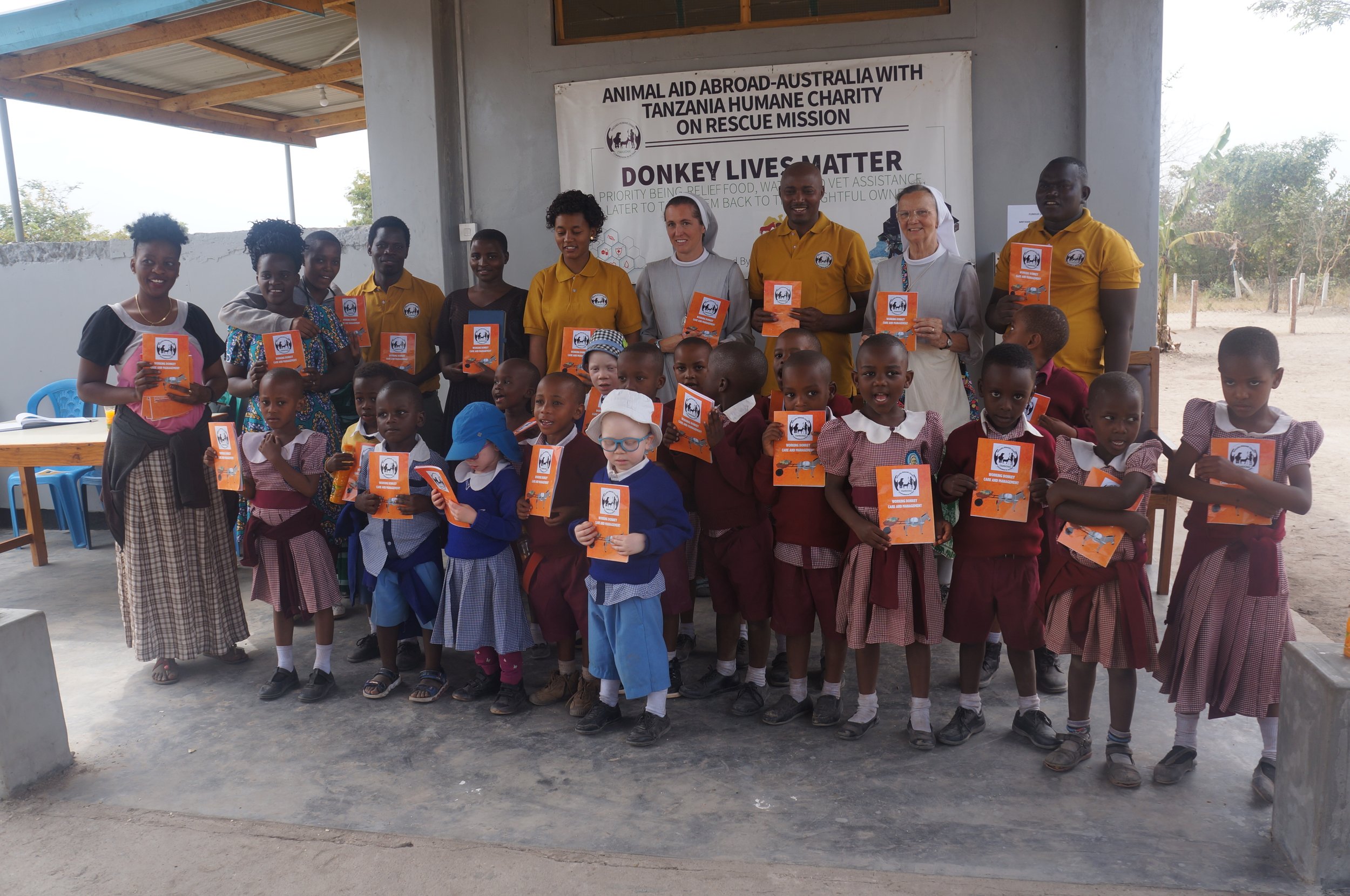Making a Difference for Vulnerable Working Donkeys in Tanzania
One of Animal Aid Abroad’s key partnerships is with the Tanzania Humane Charity, otherwise known as TAHUCHA. Thanks to funding from AAA’s generous donors, TAHUCHA have been working with communities in northwest Tanzania for six years to improve the lives, welfare and treatment of working animals. The team works closely with local communities and regional authorities to establish trust and create meaningful, sustainable change.
The AAA-TAHUCHA programs are primarily focused on improving the lives of working donkeys in Bukombe, Tanzania. Donkeys here are generally owned by people living in poverty and work in a wide range of environments, including kilns, households, markets, forests and mines. They help generate income for their owners, since they are a cheap way of transporting construction materials, soil, farm produce and water. Working donkeys therefore play an enormous economic role for vulnerable families and communities. However, despite their important role supporting people’s livelihoods, donkeys are also the most abused animals in this region of Tanzania.
Donkeys often carry weights well beyond their capacity and are harnessed to carts via wooden ox yokes that are inappropriate and inhumane. These yokes rub relentlessly on their necks, causing painful, raw wounds, yet are still widely used in this region of Tanzania. Sadly, beating donkeys is common practice too. Donkeys in Bukombe also suffer greatly from overwork and exhaustion all year round. Other issues working donkeys often face include trypanosomiasis, colic, rabies, worm infestations, ectoparasites, cracked hooves and lameness.
The shocking abuse of donkeys in Bukombe was the initial reason we set up the AAA-TAHUCHA joint partnership. Together with TAHUCHA, AAA are now greatly improving the lives of these working donkeys through veterinary care and training, educating owners and children on animal welfare, as well as enhancing cart and harness design. Each week, the TAHUCHA team undertake four-to-six mobile veterinary clinics and rescue around ten-to-twenty donkeys in need. The organisation is also playing an essential role in addressing the horrific donkey skin trade, such as through their ongoing campaign to keep the donkey slaughterhouse in Shinyanga closed.
In 2018, AAA and TAHUCHA also created a jointly owned sanctuary and clinic in Bukombe. These are funded solely by AAA and include a referral station and medical block, where badly injured donkeys can be cared for and rehabilitated. Currently, there are 32 donkeys under intensive treatment at the AAA-TAHUCHA sanctuary, with the average stay generally being between two-to-four weeks. Following treatment and recovery, the donkeys are returned to their owners, who are thoroughly educated on proper donkey care and welfare.
The sanctuary also houses 128 permanent residents, including mothers and foals who were rescued from the Shinyanga slaughterhouse. The sanctuary’s caretakers do a fantastic job looking after the many rescued donkeys, including feeding them, taking them out to graze, keeping the sanctuary and stables clean, ensuring a continuous supply of fresh water and maintaining security.
Another vital aspect of TAHUCHA’s sanctuary is their educational facility, where groups of veterinary interns, owners and children can visit and learn about donkeys and their welfare. This is essential to creating long-term change for donkeys in Bukombe. In particular, the team are intent on educating owners and riders about ceasing the use of cruel ox yokes on donkeys, which cause such debilitating and painful wounds. Instead, TAHUCHA are advocating for the use of plastic yokes, which reduce neck wounds on donkeys by approximately 55%. TAHUCHA report they have had a positive response to their educational programs, but still have a long way to go.
AAA are currently financing the development and expansion of this unique sanctuary for working donkeys in Tanzania. We recently purchased an additional 14 acres of land, bringing the AAA-TAHUCHA sanctuary to a grand total of 64 acres. Along with this extra land, AAA have also funded five water troughs, two wells and five water tanks to ensure continuous fresh water for the rescued donkeys, along with seeds so we can grow all of our own feed for the residents.
In addition to expanding the AAA-TAHUCHA sanctuary, future plans include:
1. Securing pasture, crops and irrigation so the sanctuary will eventually become self-sufficient.
2. Planting trees for shade and revegetation.
3. Improving service-based infrastructure, such as increasing medical equipment and supplies, motorbikes and bikes, providing uniforms and safety gear for TAHUCHA workers (shoes, clothes and safety glasses etc.).
4. Fencing the farm adequately to ensure the residents are properly protected.
5. Sampling and monitoring infectious diseases in domestic species in Tanzania, guided by evidence-based research and stakeholder collaboration. This would include sampling free-roaming and companion animals (dogs, cats), working animals (donkeys) and livestock to detect diseases affecting productivity, such as haemoparasites and rabies.
With support from our donors, AAA will continue our joint partnership with TAHUCHA and fund these vital programs, which are having such a positive impact on the welfare and lives of working donkeys in Tanzania.
